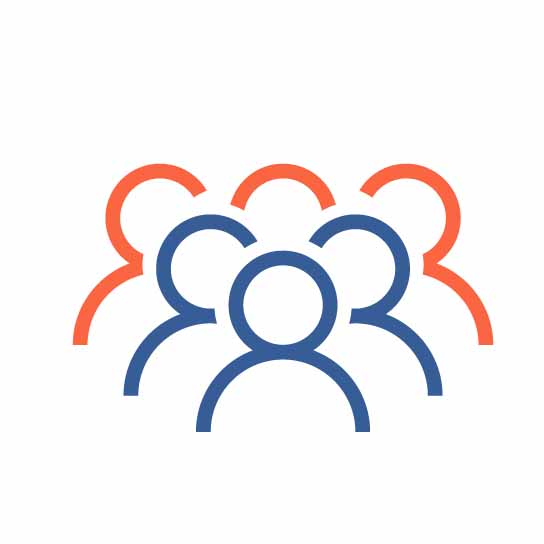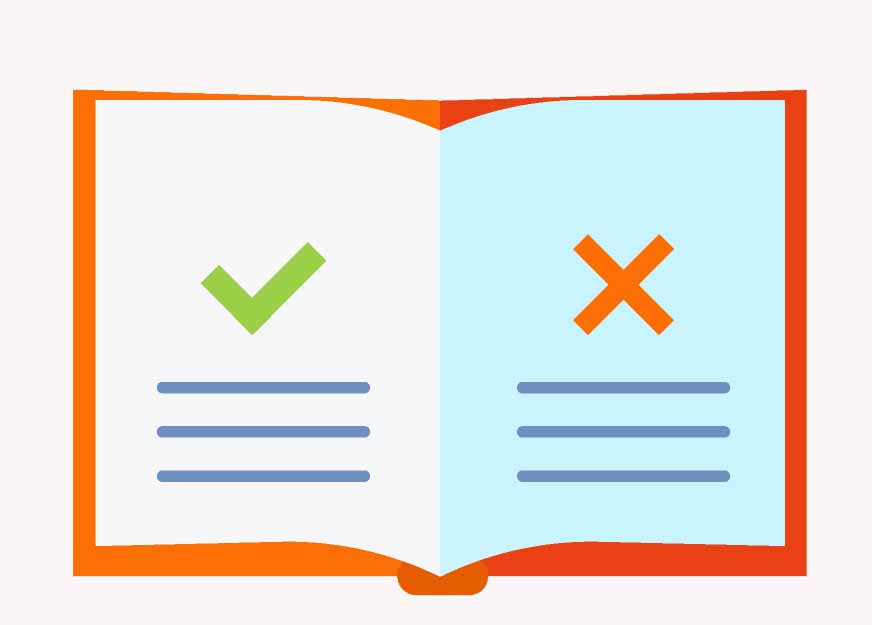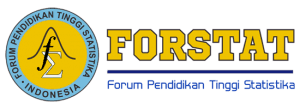Perbandingan Kinerja Metode Regresi K-Nearest Neighbor dan Metode Regresi Linear Berganda pada Data Boston Housing
Abstract
This research was made in order to see which method performance is better between the KNN (K-Nearest Neighbor) regression method and the multiple linear regression method on Boston Housing data. The method performace referred here is MAE, RMSE, MAPE, and R2. The KNN method is a method to predict something based on the closest training examples of an object. Meanwhile, multiple linear regression is a forecasting technique involving more than one independent variable. The comparison of the two methods is based on the results of the Mean Absolute Percent Error (MAPE). In this research the definitions of distance used are Euclidean distance and Minkowski distance. The K value in the KNN method defines the number of nearest neighbors to be examined to determine the value of a dependent variable, in this research we use K values from 1 to 10 for each test data and definition of distance. In this research, the percentage of test data used was 20%, 30%, and 40% for both methods. The best MAPE value obtained by the KNN regression method was 12,89% at K = 3 for Euclidean distance and 13,22% at K = 3 for Minkowski distance. Meanwhile the best MAPE value for the multiple linear regression method is 17,17%. The best method between the two methods is the KNN regression method as seen from the MAPE value of the KNN regression method which is smaller than the MAPE value of the multiple linear regression method.
Keywords
Full Text:
PDFReferences
Akbar, A. S., & Kusumodestoni, R. H. (2020). Optimization of K Value and Lag Parameter of K-Nearest Neighbor Algorithm on the Prediction of Hotel Occupancy Rates. Jurnal Teknologi Dan Sistem Komputer, 8(3), 246-254. https://doi.org/10.14710/jtsiskom.2020.13648
Al-Dosary, N. M. N., Al-Hamed, S. A., & Mohamed Aboukarima, A. (2019). K-Nearest Neighbors Method for Prediction of Fuel Consumption in Tractor-Chisel Plow Systems. Engenharia Agricola, 39(6), 729-736. https://doi.org/10.1590/1809-4430-Eng.Agric.v39n6p729-736/2019
Ayu, W., Sinaga, L., Sumarno, S., & Sari, I. P. (2022). Penerapan Metode Regresi Linier Berganda Untuk Estimasi Jumlah Penduduk Pada Kecamatan Gunung Malela. Journal of Machine Learning and Artificial Intelligence, 1(1), 55-64. https://doi.org/10.55123/jomlai.v1i1.143
Ayuni, G. N., & Fitrianah, D. (2019). Penerapan Metode Regresi Linear Untuk Prediksi Penjualan Properti Pada PT XYZ. Jurnal Telematika, 14(2), 79-86. https://journal.ithb.ac.id/telematika/article/view/321
Azmi, U., Hadi, Z. N., & Soraya, S. (2020). ARDL METHOD : Forecasting Data Jumlah Hari Terjadinya Hujan Di NTB. Jurnal Varian, 3(2), 73-82. https://doi.org/10.30812/varian.v3i2.627
Azwar, M., Hidayat, S., Yudha, F., Informatika, J., Magister, P., Industri, F. T., & Indonesia, U. I. (2021). Teknik Audio Forensik Dengan Metode Minkowski Untuk Pengenalan Rekaman Suara Pelaku Kejahatan. CyberSecurity Dan Forensik Digital, 4(1), 1-12.
Begum, A., Kheya, N. J., & Rahman, Z. (2022). Housing Price Prediction with Machine Learning. International Journal of Innovative Technology and Exploring Engineering, 3075(3), 42-46. https://doi.org/10.35940/ijitee.C9741.0111322
Budilaksana, D., Sukarsa, I. M., Agung, A., & Agung, K. (2021). Implementing k-Nearest Neighbor Methods to Predict Car Prices. Jurnal Ilmiah Merpati, 9(1), 58-71.
Labib, M., Damayanti, S. A., Zaki, H. N., Muhayat, T., & Wirawan, R. (2021). Analisis Prediksi Harga Rumah Sesuai Spesifikasi Menggunakan Multiple Linear Regression. Jurnal Informatik, 4221(3), 238-245.
Lydia, E. L., Bindu, G. H., Sirisham, A., & Kiran, P. P. (2019). Electronic Governance of Housing Price Using Boston Dataset Implementing Through Deep Learning Mechanism. International Journal of Recent Technology and Engineering, 7(6), 560-563.
Mauladi, K. F., Informatika, T., Teknik, F., Lamongan, U. I., Ujian, N., & Absolute, M. (2020). Perbandingan Metode Regresi Linear Dan Neural Network Backpropagation Dalam Prediksi Nilai Ujian Nasional Siswa SMP Menggunakan Software R. Joutica, 5(1).
Pathak, S. M., & Chaudhari, P. A. K. (2021). Comparison of Machine Learning Algorithms for House Price Prediction Using Real Time Data. International Journal of Engineering Research and Technology, 10(12), 300-305.
Permana, A. P., Ainiyah, K., & Holle, K. F. H. (2021). Analisis Perbandingan Algoritma Decision Tree, kNN, dan Naive Bayes untuk Prediksi Kesuksesan Start-up. JISKA (Jurnal Informatika Sunan Kalijaga), 6(3), 178-188. https://doi.org/10.14421/jiska.2021.6.3.178-188
Priambodo, B., Rahayu, S., Hazidar, A. H., Naf'An, E., Masril, M., Handriani, I., Pratama Putra, Z., Kudr Nseaf, A., Setiawan, D., &
Jumaryadi, Y. (2019). Predicting GDP of Indonesia Using K-Nearest Neighbour Regression. Journal of Physics: Conference Series, 1339(1). https://doi.org/10.1088/1742-6596/1339/1/012040
Putro, B., Furqon, M. T., & Wijoyo, S. H. (2018). Prediksi Jumlah Kebutuhan Pemakaian Air Menggunakan Metode Exponential Smoothing. Jurnal Pengembangan Teknologi Informasi Dan Ilmu Komputer, 2(11), 4679-4686.
Saiful, A., Andryana, S., & Gunaryati, A. (2021). Prediksi Harga Rumah Menggunakan Web Scrapping dan Machine Learning Dengan Algoritma Linear Regression. JATISI (Jurnal Teknik Informatika Dan Sistem Informasi), 8(1), 41-50. https://doi.org/10.35957/jatisi.v8i1.701
Santoso, P. Y., & Kusumaningsih, D. (2018). Algoritma K-nearest Neighbor Dengan Menggunakan Metode Euclidean Distance Untuk Memprediksi Kelulusan Ujian Nasional Berbasis Desktop SMA Negeri 12 Tangerang. Skanika 2018, 1(1), 123-129.
Setiawan, A. (2022). Perbandingan Penggunaan Jarak Manhattan, Jarak Euclid, dan Jarak Minkowski dalam Klasifikasi Menggunakan Metode KNN Pada Data Iris. Jurnal Sains Dan Edukasi Sains, 5(1), 28-37. https://doi.org/10.24246/juses.v5i1p28-37
Tatachar, A. V. (2021). Comparative Assessment of Regression Models Based On Model Evaluation Metrics. International Journal of Innovative Technology and Exploring Engineering, 8(9), 853-860.
Utomo, P. B., Utami, E., & Raharjo, S. (2019). Implementasi Metode K-Nearest Neighbor Dan Regresi Linear Dalam Prediksi Harga Emas. Jurnal Informasi Interaktif, 4(3), 155-159.
DOI: https://doi.org/10.34312/jjps.v4i1.18948
Refbacks
- There are currently no refbacks.
Copyright (c) 2023 Jambura Journal of Probability and Statistics

This work is licensed under a Creative Commons Attribution-NonCommercial 4.0 International License.







.jpg)






